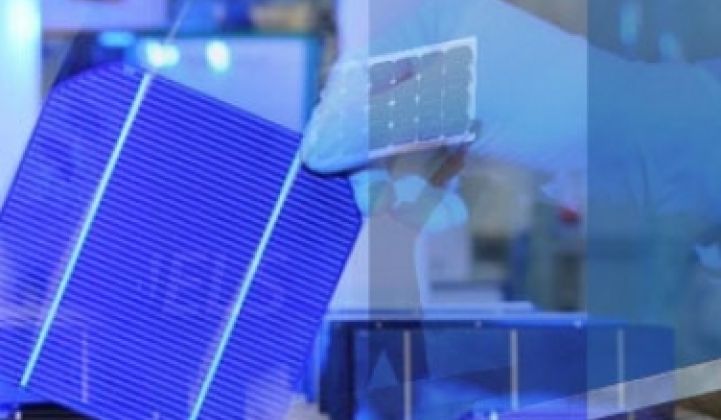2010 is shaping up to be another strong year for Suntech, says Steve Chan.
Chan, the chief strategy officer and president of global sales and marketing for Suntech Power Holdings, said that the Chinese solar manufacturer could sell close to 200 megawatts of solar panels into the North American market in 2010 during a recent interview with Greentech Media.
That would potentially give it close to 20 to 25 percent of the U.S. market. PV panels to the U.S. are expected to come to around 800 to 1,000 megawatts.
"We're forecasting the Suntech business to go from 65 megawatts last year to about 200 this year, which would be a huge jump if we can accomplish that," he said.
The 2010 total would include sales to Ontario, Canada, one of the more rapidly developing markets right now. Samsung last year committed to invest $1.6 billion in renewable projects and factory capacity the province. Thus, it's not a completely even comparison, but most of the shipments will go to the U.S.
In 2008, it sold 35 megawatts worth of panels in the U.S. "We grew the market share from 10 to 15 percent during a time that was kind of choppy," he said.
The U.S. dealer network has also grown from 40 installer/dealers to around 200 in a year. And, although Suntech has largely sold into the residential market in the states, the company is expanding its utility portfolio.
"We're on the short list of five plus projects of 1.5 gigawatts (in total) for installation from 2011 to 2015," he said. "We're on the short list where maybe there are one to three other module companies on the list. That is something we are hoping to lock in the next six months."
Not all is wonderful in Suntech-land, of course. Competition remains fierce. First Solar and SunPower have landed a number of large contracts with utilities as well and General Electric said recently that it would sell cadmium telluride solar panels next year to developers bidding on utility-scale projects.
Some of Suntech's new business efforts haven't exactly zoomed to success either. Gemini Solar, a Suntech joint venture that develops solar power plants, has landed a comparatively small 30-megawatt plant announced a little over a year ago but that's about it. The CSG Solar acquisition, which made Suntech a manufacturer of crystalline silicon-on-glass modules, is being retooled. Suntech bought a controlling interest in the company -- which had raised $35 million in VC funds -- last year. After the acquisition, solar prices plummeted.
"It [CSG] had made product and shipped it commercially, but it is no longer produced because the ASPs (average selling prices) have fallen so low," he said. "They are retooling the product to make it more cost-effective."
The CSG Solar acquisition was somewhat soft-pedaled. It was listed in Suntech's SEC forms. In November, it mentioned that CSG founder David Hogg (not to be confused with Sir Denis Eton-Hogg) would head up Suntech Europe.
Other things on Suntech's mind:
--The company likes the U.S. better than Europe in some ways. Europe collectively remains a larger market but the frenzy preceding and following feed-in tariff adjustments can wreak havoc with panel prices and the stocks of solar companies.
"The good thing about the U.S. market is that you can really plan for the long term," Chan said. "The incentives aren't as generous but it is much more long term."
--For most of last year, Suntech has had spare factory capacity, but that disappeared during the summer. That's a reversal from a year ago, when the company was implementing layoffs and left 50 percent of its factory capacity idle.
"We've basically been operating at maximum capacity since August of last year," he said. Suntech has approximately 1.2 gigawatts of module capacity. "Now we're having problems juggling the orders."
--Pricing in the solar market has calmed down and roughly stabilized in February, he said.
--Other entrants like Samsung and Panasonic will hit the ground running in solar and come in with lots of money. How well they do is another matter.
"The question is can they be differentiated above and beyond what is already in the market."
Solar, though, will likely remain attractive to these companies because it could provide some stability to companies used to even the often wilder price swings in semiconductors and televisions.
--Suntech has three thin film efforts: an amorphous crystalline silicon arm based around the SunFab equipment line from Applied Materials, the currently-in-limbo CSG Solar effort and an unnamed in-house thin film project. Chan would say what the third one involves but noted that the company's expertise lay in silicon.
--Capacity in Suntech's plant for its high-efficiency Pluto modules will rise to 450 megawatts by the end of the year. Actual production will be lower. Suntech will produce around 30 megawatts by the end of the first half and 120 to 150 megawatts in the second half. The average efficiency for Pluto cells cells now tops 19 percent, up from 18.9 percent a little while ago. However, module efficiency is lower.



